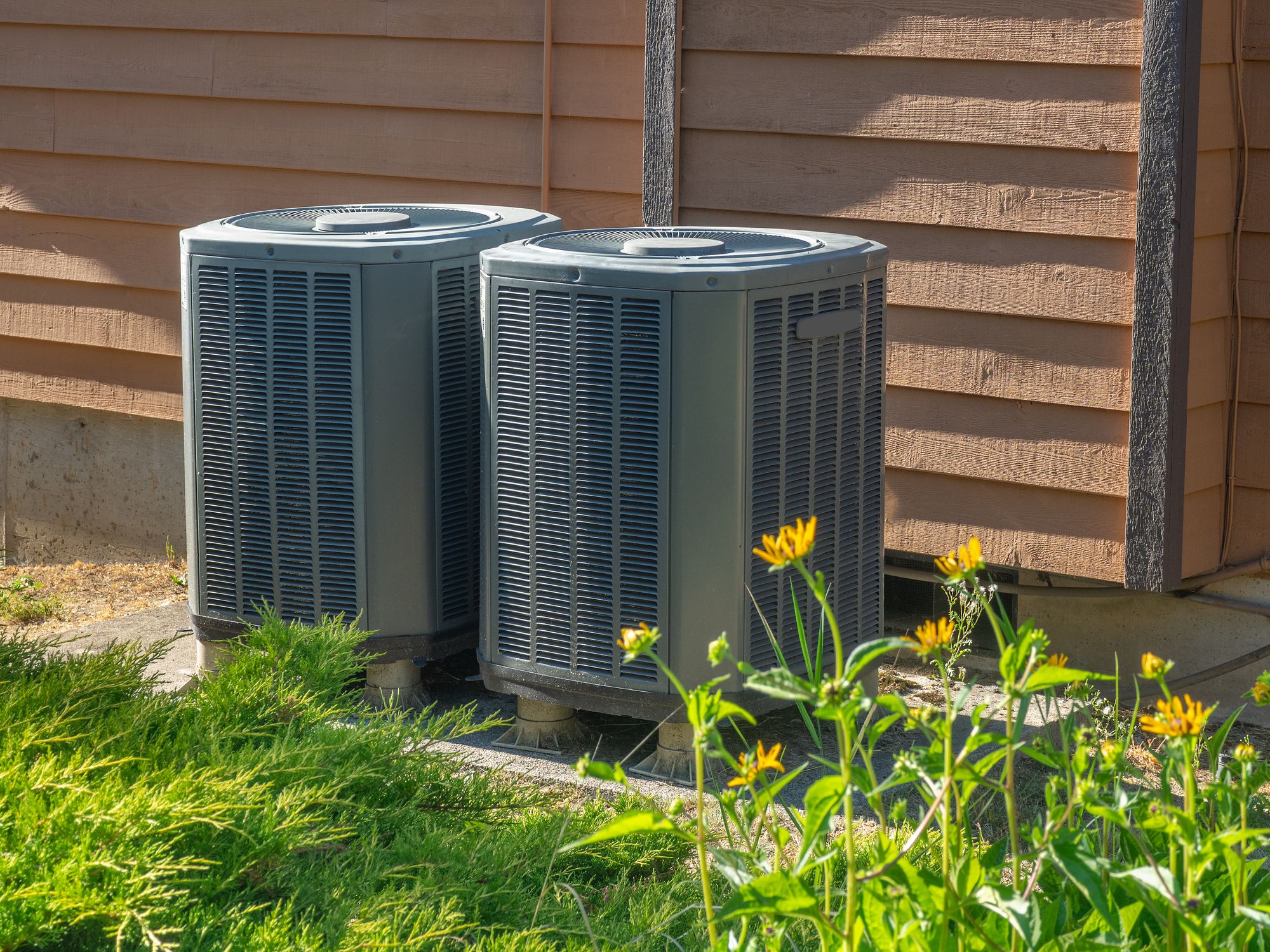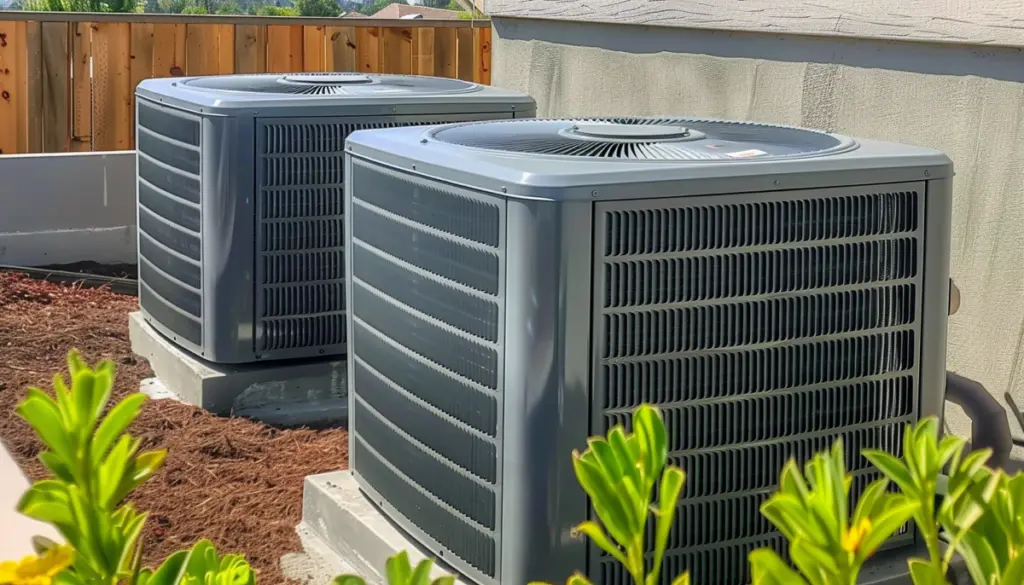Understand how HVAC experts assist with replacements smoothly
Exploring the Crucial Elements of an Efficient A/c System
An effective heating and cooling system is improved several crucial elements that operate in harmony. Each part, from the thermostat to the ductwork, plays an essential role in keeping convenience and power effectiveness. Comprehending these aspects is crucial for optimizing performance and improving indoor air high quality. As one checks out these components, the detailed partnerships between them reveal understandings into enhancing total system efficiency. What specific factors add most to this efficiency?
The Duty of the Thermostat in Heating And Cooling Effectiveness

Frequently ignored, the thermostat plays an essential function in the effectiveness of Heating and cooling systems. This tiny tool serves as the key nerve center, managing temperature level settings and guaranteeing suitable convenience within an area. By accurately noticing the ambient temperature level, the thermostat connects with the home heating, air, and ventilation conditioning devices to keep the preferred climate
A reliable thermostat lessens power intake by activating the cooling and heating system only when necessary, consequently preventing excessive home heating or cooling. Modern programmable and clever thermostats improve this effectiveness even more by permitting individuals to set schedules and remotely change settings, adjusting to everyday regimens.
The positioning of the thermostat is important; improper location can lead to imprecise temperature readings, resulting in inefficient procedure. On the whole, a well-functioning thermostat not just improves comfort however likewise contributes noticeably to power savings and the longevity of the HVAC system.
Understanding the Significance of Air Filters
Air filters offer a crucial function in a/c systems by guaranteeing that the air distributing within a room remains clean and healthy. These filters trap dust, irritants, and other contaminants, preventing them from being recirculated throughout the atmosphere. By capturing these fragments, air filters contribute to boosted indoor air high quality, which can considerably benefit residents' health and wellness, especially those with allergies or breathing problems.
In addition, preserving tidy air filters boosts the efficiency of cooling and heating systems. Clogged filters can restrict airflow, creating the system to work harder to keep wanted temperatures, resulting in increased energy usage and higher utility expenses. Consistently changing or cleaning up filters is an important upkeep action that can lengthen the lifespan of heating and cooling devices. Eventually, understanding the value of air filters allows property owners and structure managers to take aggressive measures to guarantee a well-functioning, efficient heating and cooling system that advertises a comfy and risk-free interior atmosphere.

The Performance of the Heater and Heatpump
Heaters and warmth pumps are essential elements of cooling and heating systems, accountable for providing warmth during cooler months. Heaters operate by heating air with burning or electric resistance, after that dispersing it throughout the home by means of ducts. They usually supply fast heating and can be fueled by gas, electricity, or oil, depending on the system kind.
On the other hand, heatpump transfer heat rather than create it. They extract heat from the outside air or ground, even in reduced temperatures, and transfer it inside. HVAC experts. This twin functionality enables heatpump to also provide air conditioning in warmer months, making them flexible options for year-round environment control
Both systems call for appropriate maintenance to ensure efficiency and durability. While heating systems master severe cold, heat pumps can be beneficial in moderate environments. Recognizing their distinctive functionalities help house owners in choosing one of the most appropriate choice for their home heating requires.
Discovering the Cooling Device
The air conditioning device is a vital component of a/c systems, available in various kinds to suit various requirements. Understanding the effectiveness scores of these devices is vital for making educated selections about power intake and price. This area will check out the varied sorts of a/c unit and make clear exactly how performance ratings effect performance.
Kinds Of Air Conditioners
While numerous variables influence the selection of a/c systems, comprehending the various kinds offered is crucial for home owners and structure supervisors alike. Central air conditioning conditioners are developed to cool down entire homes or buildings, utilizing a network of ducts for air flow. Home window systems offer an even more local service, suitable for small areas or single spaces. Mobile air conditioners supply adaptability, permitting users to relocate the system as needed. Ductless mini-split systems are one more alternative, incorporating the efficiency of central systems with the ease of zoning, as they call for no ductwork. Geothermal systems harness the planet's temperature for energy-efficient cooling. Each type features unique benefits, making informed choices essential for effective climate control.

Effectiveness Rankings Clarified
Recognizing performance rankings is necessary for choosing the right air conditioning unit, as these metrics offer understanding into the system's efficiency and power intake. The most typical ranking for air conditioning system is the Seasonal Power Efficiency Ratio (SEER), which gauges the cooling output during a regular air conditioning period separated by the complete electric energy input. A greater SEER suggests far better efficiency. Additionally, the Energy Effectiveness Proportion (EER) is used for measuring efficiency under specific conditions. One more crucial metric is the Power Star qualification, which symbolizes that a device satisfies strict power efficiency standards. By examining these ratings, customers can make educated choices that not just maximize convenience but additionally reduce energy expenses and ecological influence.
The Importance of Ductwork and Air movement
Efficient ductwork layout and air movement administration play vital duties in the overall performance and performance of cooling and heating systems. click here Appropriate ductwork warranties that conditioned air is distributed uniformly throughout a room, lessening temperature level changes and enhancing convenience. Well-designed air ducts lessen resistance to air flow, minimizing the work on a/c equipment and inevitably reducing power usage.
Airflow management includes purposefully putting vents and registers to enhance the flow of air. This stops common problems such as cool or warm places, which can happen when air movement is obstructed or improperly balanced. Furthermore, the right duct materials and insulation can further enhance performance by decreasing heat loss or gain throughout air transportation.
An efficient ductwork system not just adds to power cost savings however can likewise lengthen the life-span of a/c equipment by lowering unnecessary strain (HVAC experts). Recognizing the value of ductwork and air flow is vital for attaining peak A/c system performance.
Normal Upkeep Practices to Improve Performance
Regular upkeep techniques are important for ensuring peak performance of heating and cooling systems. These techniques consist of routine inspections, cleaning, and required repair work to maintain the system running successfully. Consistently transforming air filters is vital, as blocked filters can obstruct air movement and reduce effectiveness. In addition, specialists ought to check and clean evaporator and condenser coils to stop getting too hot and energy waste.
Annual professional inspections are additionally advised, as skilled professionals can recognize potential concerns before they rise. Lubricating relocating components reduces wear and tear, adding to a much longer life expectancy for the system. Making sure that the thermostat functions correctly aids in preserving suitable temperature level control.
Regularly Asked Inquiries
Just how Frequently Should I Replace My Thermostat?
Thermostats should typically be changed every 5 to 10 years, relying on usage and technology improvements. Regular checks are advisable to ensure peak performance, specifically if experiencing irregular temperature level control or raised energy costs.
What Size Air Filter Is Finest for My A/c System?
The finest size air filter for a cooling and heating system varies by unit style. Usually, it's important to get in touch with the proprietor's handbook or examine the existing filter measurements to assure peak efficiency and air top quality.
Can I Set Up a Warmth Pump Myself?
Setting up a heatpump separately is possible for skilled individuals, however it needs understanding of regional codes and electric systems. Employing a professional is recommended to guarantee correct setup and ideal system performance.
Just how Do I Know if My Ductwork Is Reliable?
To determine ductwork efficiency, one ought to look for leaks, procedure air movement at vents, check insulation top quality, and evaluate temperature differences in between supply and return air ducts. Specialist analyses can provide extensive understandings right into overall efficiency.
What Are Indicators My Cooling And Heating Demands Immediate Upkeep?
Indications that a heating and cooling system requires prompt upkeep include uncommon noises, inconsistent temperatures, enhanced power expenses, unpleasant odors, and regular cycling. Dealing with these issues quickly can avoid more damages and warranty optimal system performance.
Air filters offer a vital function in HVAC systems by assuring that the air flowing within an area remains clean and healthy. Additionally, maintaining tidy air filters improves the performance of A/c systems. Ductless mini-split systems are an additional choice, combining the performance of main systems with the ease of zoning, as they require no ductwork. Comprehending performance scores is important for choosing the ideal air conditioning device, as these metrics offer understanding right into the system's efficiency and energy intake. The finest size air filter for a Cooling and heating system varies by unit layout.